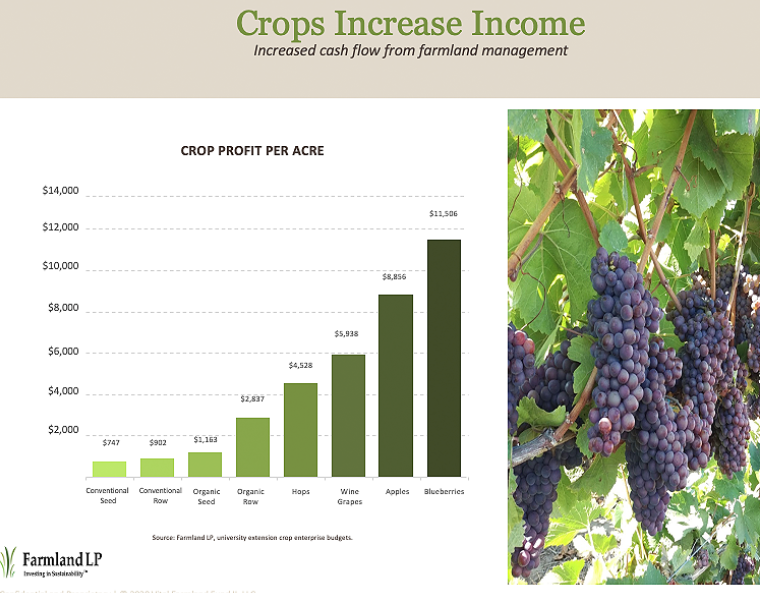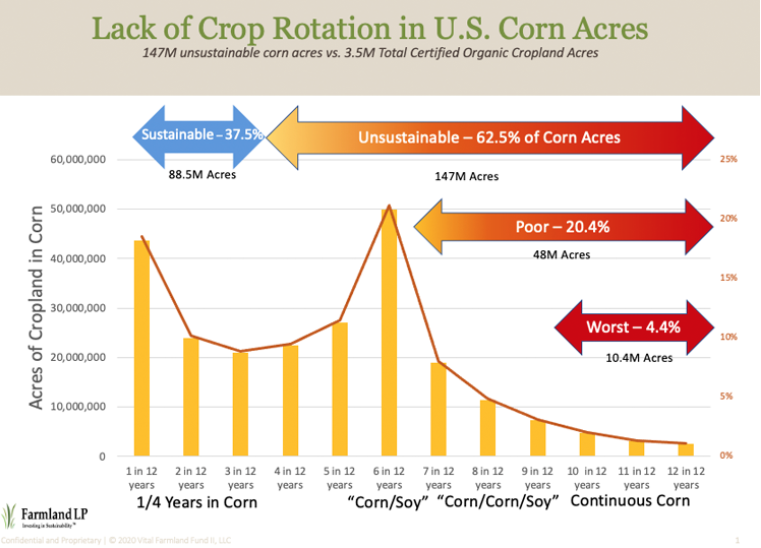Setting the Benchmark for Sustainable Agriculture
Setting the Benchmark for Sustainable Agriculture
by Craig Wichner, CEO of Farmland LP
Like many Americans, I’ve started travelling again. Flying over the Midwest recently on my way to a conference in New York, it was hard not to be awed by the sight of mile after mile of cropland – around 180 million acres – growing just two crops, corn and soy.
What’s less visible from 30,000 feet but very evident on the ground, however, is the immense cost of growing these two crops year after year – topsoil loss, chemical residue in the soil from pesticides like 2-4-D and atrazine, a loss of pollinators, and vast water pollution. This type of agriculture is also at the center of a system responsible for about a third of the planet’s greenhouse gas emissions.
U.S. agriculture has a concentration problem. It started 50 years ago, when the head of the USDA told farmers to plant for maximum production – from “fence row to fence row” and “get big or get out.” It worked. Today, 56 percent of American cropland acres are growing just corn and soy. Crop diversity and crop rotation, once the hallmarks of land stewardship and productivity, are vanishing.
Investors and consumers are waking up and beginning to ask tough questions of farm managers. The answer going forward is Organic and Sustainable Agriculture with variety of criteria that we set forth in this article.
The USDA Certified Organic standard meets these criteria today. Its 15-member National Organic Standards Board includes: organic farmers; environmental conservationists; organic processors; a retailer; a consumer representative; a USDA accredited certifying agent; and a scientist with relevant background. Authorized certifiers review documents and inspect fields to ensure farmers and products meet these rigorous standards. And 40 years of published scientific research supports the many benefits of organic agriculture on human health, soil health, and the ecosystem.
Read Craig's full article here - https://greenmoney.com/setting-the-benchmark-for-sustainable-agriculture





